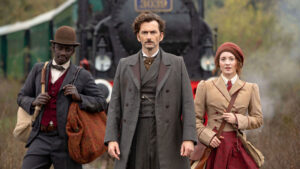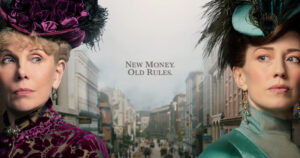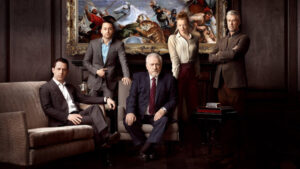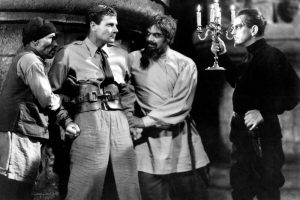Around the World in 80 Days is a travel story. There is no getting around it and this presents story-telling difficulties. This week’s episode of Around the World in 80 Days demonstrated some of the problems and I’d like to look at it closely from that aspect.
The overarching problem in a travel story is that locations and secondary characters change from week to week or chapter to chapter in a book. I’d like to examine how the most recent episode of Around the World, set in the western United States, handled the issue and why it largely, in my opinion, did not succeed.
Believability in Introduced Characters
New characters come into a travel story on a regular basis and it’s important to distinguish them quickly and effectively. This way their story is compelling to the audience.
In this episode the primary new characters were a United States Marshal and his prisoner. They joined the group when the marshal flagged down our heroes’ stagecoach and demanded to ride along. We quickly learned the prisoner was a racist from the south and veteran of the Civil War.
The marshal was a one-dimensional caricature at best; frankly I’d like call him a quarter-dimensional or worse. He lacked even the most basic, white-hat wearing, cartoon hero’s credibility. The villain was no better. They both appeared to be on the show simply to have a good guy and a bad guy. I believed neither as a fully formed person.
Because I wasn’t interested in the new characters, their story did not engage me in any way. It’s important to like the hero and dislike the villain, sure, but if I find neither interesting or realistic, it doesn’t work. I can’t hate or like either one.
Intermeshing Goals
The new characters need to interact with the main characters in a way that advances their arc. That is to say, introduced characters must mesh meaningfully with the established characters in a travel story. It’s not easy to mingle a new story with the main plot and, unfortunately, I thought Around the World failed miserably in this case.
Around the World attempted to have the villainous new character appeal to the base, racist nature perceived in the main character. It didn’t really work for me because Fogg never seemed racist at any point of the story, classist certainly, but not racist. If the appeal focused on the inappropriate relationship of a servant and a well-to-do young woman, I might have found it interesting but that wasn’t the point of the story at all.
Meanwhile the marshal and Passepartout were meant to interact as black men in a racist white world. Again, it seemed ineffective to me. Passepartout didn’t have reason to see the entire world as racist, only that miserable caricature of a villain. I never saw a bond or growth in any of the main characters throughout the episode.
The Conflict
The conflict in the story was a little better although so contrived and ridiculous I didn’t find myself concerned about the outcome. A shootout at the saloon with the bad guys is a staple of westerns and I see what the writers were trying to do. It never came across emotionally to me because the villains and hero never seemed real.
The ending with Fogg and the villain was so contrived it had no impact on me whatsoever. I get the idea. Fogg gaining his courage, but it just did not work for me at all. The villain’s monolog and surrender stirred no emotions.
Playing for Laughs
I must take a moment to talk about the insertion of humor into tense situations. It’s the fourth or fifth time Around the World played a dramatic fight or chase scene for laughs. When Fix flashes the peace sign with a goofy grin and Passepartout goes into his impromptu speech, it seemed to me an attempt at humor and ill-timed to say the least. I’m not sure what’s up with all of that but it’s not working for me.
Conclusion
Another poor episode in my opinion. I don’t think the main characters gained any insight or moved forward. It seemed like a simple attempt to say racism bad. Yeah, well, ok. Count me in on that. Racism is bad, I’m with you. Now, tell a convincing travel story where it emotionally impacts me, not this mess.
Tom Liberman







